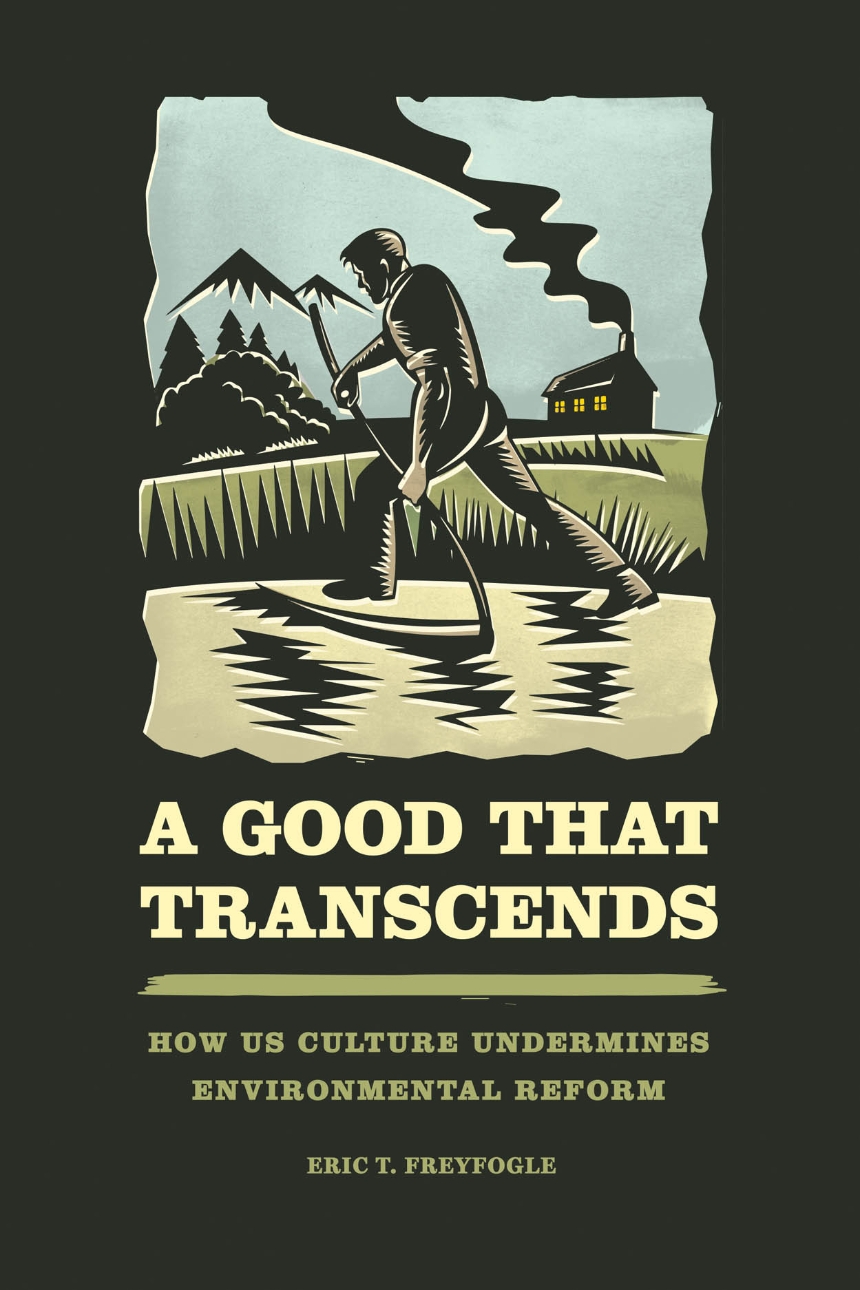A Good That Transcends
How US Culture Undermines Environmental Reform
9780226326115
9780226326085
9780226326252
A Good That Transcends
How US Culture Undermines Environmental Reform
Since the birth of the modern environmental movement in the 1970s, the United States has witnessed dramatic shifts in social equality, ecological viewpoints, and environmental policy. With these changes has also come an increased popular resistance to environmental reform, but, as Eric T. Freyfogle reveals in this book, that resistance has far deeper roots. Calling upon key environmental voices from the past and present—including Aldo Leopold, Wendell Berry, David Orr, and even Pope Francis in his Encyclical—and exploring core concepts like wilderness and the tragedy of the commons, A Good That Transcends not only unearths the causes of our embedded culture of resistance, but also offers a path forward to true, lasting environmental initiatives.
A lawyer by training, with expertise in property rights, Freyfogle uses his legal knowledge to demonstrate that bad land use practices are rooted in the way in which we see the natural world, value it, and understand our place within it. While social and economic factors are important components of our current predicament, it is our culture, he shows, that is driving the reform crisis—and in the face of accelerating environmental change, a change in culture is vital. Drawing upon a diverse array of disciplines from history and philosophy to the life sciences, economics, and literature, Freyfogle seeks better ways for humans to live in nature, helping us to rethink our relationship with the land and craft a new conservation ethic. By confronting our ongoing resistance to reform as well as pointing the way toward a common good, A Good That Transcends enables us to see how we might rise above institutional and cultural challenges, look at environmental problems, appreciate their severity, and both support and participate in reform.
A lawyer by training, with expertise in property rights, Freyfogle uses his legal knowledge to demonstrate that bad land use practices are rooted in the way in which we see the natural world, value it, and understand our place within it. While social and economic factors are important components of our current predicament, it is our culture, he shows, that is driving the reform crisis—and in the face of accelerating environmental change, a change in culture is vital. Drawing upon a diverse array of disciplines from history and philosophy to the life sciences, economics, and literature, Freyfogle seeks better ways for humans to live in nature, helping us to rethink our relationship with the land and craft a new conservation ethic. By confronting our ongoing resistance to reform as well as pointing the way toward a common good, A Good That Transcends enables us to see how we might rise above institutional and cultural challenges, look at environmental problems, appreciate their severity, and both support and participate in reform.
240 pages | 6 x 9 | © 2017
Biological Sciences: Conservation, Natural History
Earth Sciences: Environment
Law and Legal Studies: Law and Society
Reviews
Table of Contents
Introduction
One Leopold’s Last Talk
Two The Love of Wendell Berry
Three Impressionism and David Orr
Four The Cosmos and Pope Francis
Five Taking Property Seriously
Six Wilderness and Culture
Seven Naming the Tragedy
Conclusion: Thinking, Talking, and Culture
Acknowledgments
Notes
Selected Bibliography
Index
